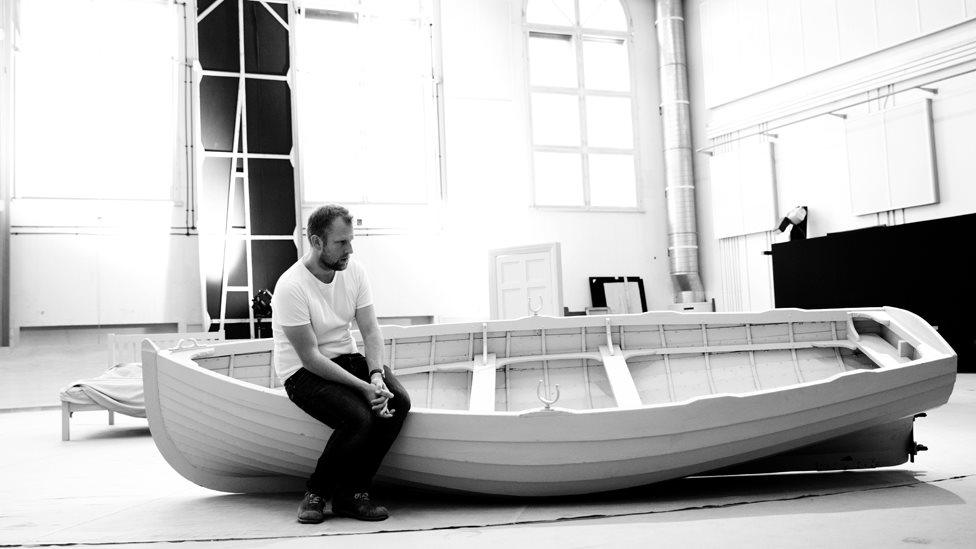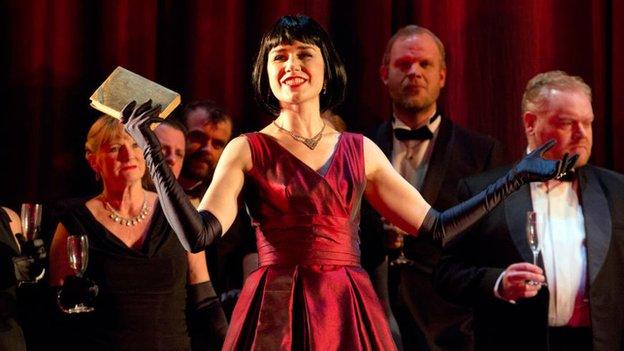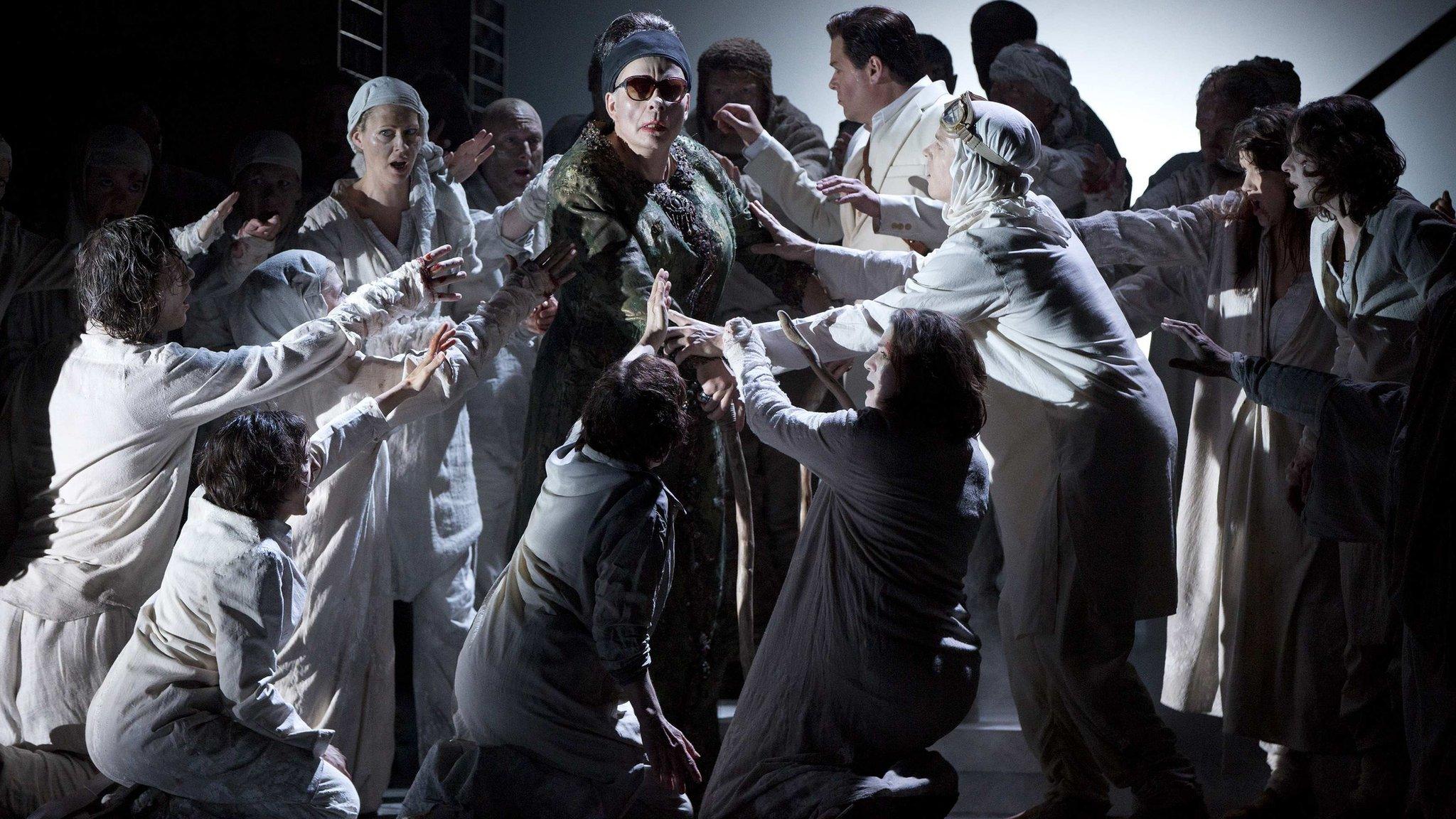British opera 'in crisis' says renowned director Graham Vick
- Published

Graham Vick works at many of the world's leading opera houses, and is director of the Birmingham Opera Company
British opera is in "crisis" as a result of funding cuts to the arts, says renowned director Graham Vick.
Speaking to BBC Radio 3's In Tune, he said the "radical reducing of public subsidy" was a particular threat to regional companies.
"Opera companies are [being] forced more and more to rely on any private money they can raise," he said.
"Inevitably, a theatre like the Royal Opera House is able to raise more than smaller, less attractive companies.
"That's why we're seeing the extraordinary explosion of country house opera - Grange Park, Longborough, Glyndebourne and so on - and the shrinking of regional opera.
"All our marvellous regional opera companies are in real trouble and struggling."
Grant in aid to England's Arts Council has fallen nearly 30% in the last five years, and opera houses have not been spared from the cuts.
English National Opera was hit particularly hard, with its annual grant cut from £17.2m in 2014/15 to £12.4m in the next financial year, amid concerns over its management and business model.
Vick, who is the artistic director of Birmingham Opera Company and works in many of the world's major opera houses - including La Scala and the Royal Opera House - said he "fears for the future" of the artform.
'Masterpiece'
The 61-year-old was speaking to BBC Radio 3's Suzy Klein ahead of the world premiere of Morgen und Abend, external (Morning and Evening) at the ROH this weekend.
He described the opera, written by Austrian composer Georg Friedrich Haas, as "an astonishing masterpiece".

Morgen und Abend is one of eight new works playing at the Royal Opera House in its 2015-16 season
"Unusually for opera, it deals with mature emotions," said Vick, who is directing the production about the life and death of a Nordic fisherman.
"The first half hour is about the last moments in the womb and his emergence into life," explained Vick, "and the rest of the opera is about his realisation that he's dead".
Praising the composer as a "genius", he said the opera was "existential, profound, complex and simple all at the same time".
"Today a first-time opera goer came to the dress rehearsal - a woman who does my VAT receipts for me," he said. "She said to me at the end, 'it was extraordinary - I could see the music in the air'.
"That ability - to conjure that image from a first-time opera-goer - is an example of his extraordinary gift."
The Royal Opera House has fought back against cuts by programming much-loved favourites, like La Traviata, Tosca and Carmen, against cutting-edge and contemporary works.
It is premiering eight new pieces in its 2015-16 season.

- Published2 November 2015

- Published9 March 2015

- Published1 July 2014
